We talk a lot about the materials we love to use--like White Oak, Black Walnut, and Brass. But we don’t usually talk about the materials we avoid. You might wonder why we don’t offer certain wood species, or why we build our hardware a certain way. So here’s some insight into the materials we don’t use, and why.
Poplar
Poplar is a “hardwood” in name only as far as we’re concerned. It makes a fine enough utility lumber, but we’d always rather use wood species that have good hardness and durability and that look beautiful, too. Poplar just doesn’t look great as lumber, so we don’t use it. Simple as that. (It does, however, make for a nice ornamental tree.)

Pine
Softwood and hardwood can be confusing terms. A “softwood” is an evergreen tree species, like fir, pine, or cedar. Hardwood is any deciduous tree, like oak, cherry, or walnut. But don’t get tripped up with “hard” and “soft”--softwoods can be suitable for exterior use. In fact, Western Red Cedar is one of our premier exterior hardwoods because it contains natural aromatic compounds that resist rot or insect attack. But when it comes to softwoods, pine is off the table for us. It tends to be too soft for use in doors, and it has an unsightly yellowish color. So we stick to Douglas Fir and Cedar varietals instead.

Cuban and Honduran Mahogany
True mahoganies are critically endangered (and therefore pretty difficult to find anyway). Even if we could get our hands on true mahogany, it doesn’t feel right to use because of the environmental status. Instead, we use Sapele, a species with similar coloration and hardness to true mahogany. Sapele is native to West Africa. Our Sapele is FSC Certified, so you can be sure it’s been harvested responsibly.

Bamboo
At RealCraft, we use only solid wood. Full stop. And bamboo isn’t wood. It’s technically a kind of grass. It’s especially bad for exterior applications like doors because it’s extremely susceptible to rot and decay, and it doesn't have the best dimensional stability. That’s not to say that we’re anti-bamboo for other applications–as a fast growing material, bamboo is a sustainable option for lots of things, including paper products, and window blinds. It's suitable for interior furniture, and even musical instruments. It’s just that for our purposes, bamboo is too inconsistent (the quality and characteristics vary widely) and too prone to shrinkage.

Rosewood
There are several tropical hardwoods referred to as “rosewood,” and we avoid carrying them. The reason for this is that global demand for rosewood and rosewood substitutes is a driving factor in the rise of deforestation throughout West Africa. Many of these wood species are over-harvested and are now threatened or endangered. The international rosewood trade also contributes to government corruption and humanitarian problems. While true rosewood is very beautiful, the negative externalities make it much less appealing to us. That’s also why we avoid stocking other critically endangered exotic hardwoods like Ebony.

Imported metals
We partner with Puget Sound-based manufacturers to make our hardware. And our partners use only American steel, iron, and brass. This allows us to control the quality better than with imported metals, which we’ve found to be of variable quality. It’s also part of our larger commitment to supporting American industry. Plus it means that our hardware has a lower carbon footprint, because the raw materials don’t have to cross the ocean to get to us. Our "American metal only" rule also means that we’re more resilient to supply-chain shocks, so you can rely on us for hardware no matter what.

Hollow tubular metal
Our Swiss Rod hardware is a best-seller for the unique look it brings. But did you know that many other tubular hardware kits on the market are made with hollow tubes instead of solid metal? Not for us! We only use solid brass and solid stainless steel for our cylindrical hardware kits. This makes the hardware stronger, more reliable, and quieter, too.

Aluminum (for hardware kits)
We like aluminum for certain applications because it’s not as dense as steel. We also love it for things like our best-selling Cavity Sliders pocket door frame kit. But for barn door hardware kits, we stick to steel because it allows us to give the kits higher weight ratings–so they work for a larger range of sliding doors.

Our Materials Promise
Always Real.
We don’t use veneers. Your door is made with real, solid wood. If you order a Black Walnut entry door, that’s not a finish color or a veneer. It means your door is made with solid Black Walnut lumber.
Same with hardware. If you order a brass RealCraft hardware kit or barn door handle, then it’s solid brass. If you order stainless steel, it’s stainless steel. Nice and simple.
Always Premium.
We source only the best lumber and metals for our projects, because we believe that in your home, every detail counts. Our products are built to last, and quality materials help with that.
Learn more about our wood species, and shop our collection of solid steel and brass hardware.

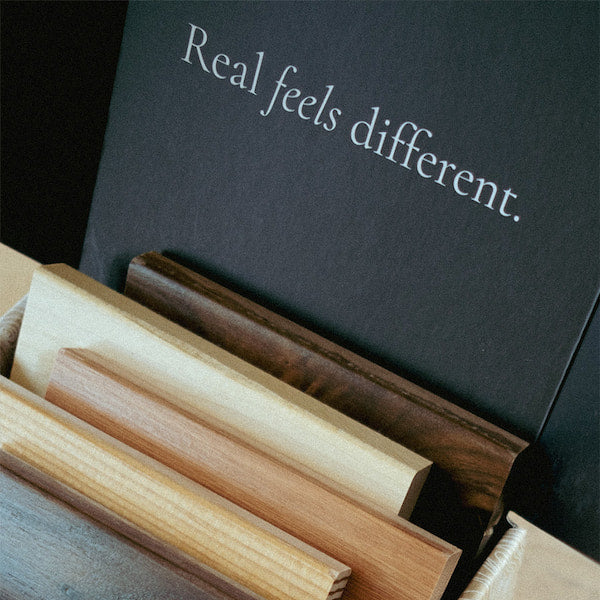
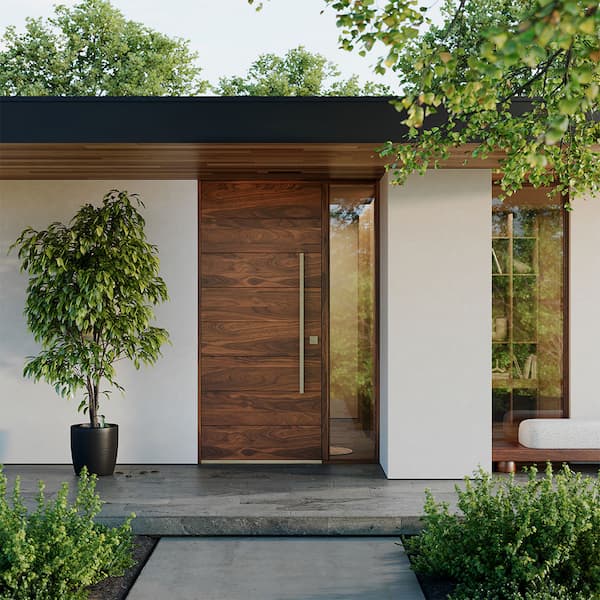


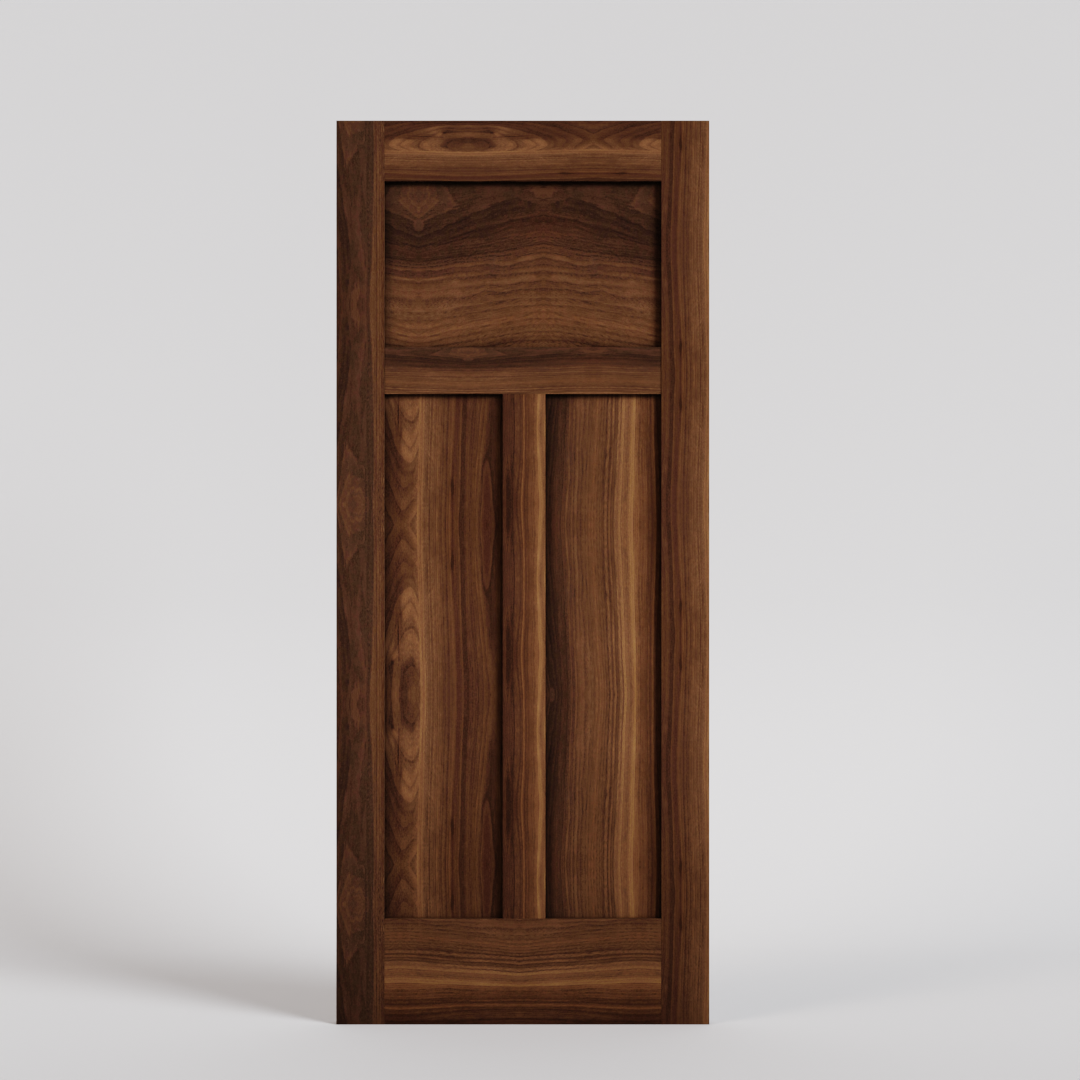
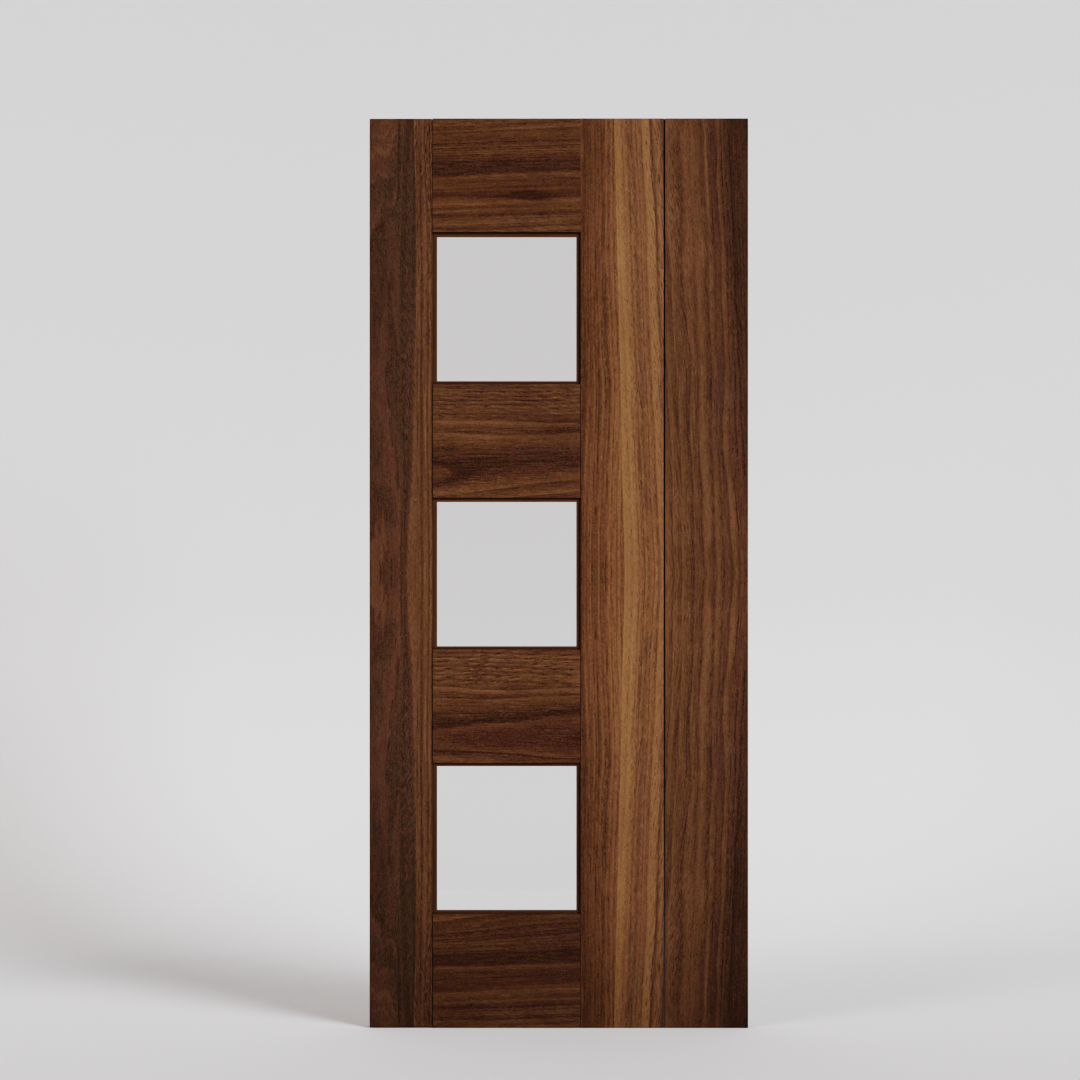
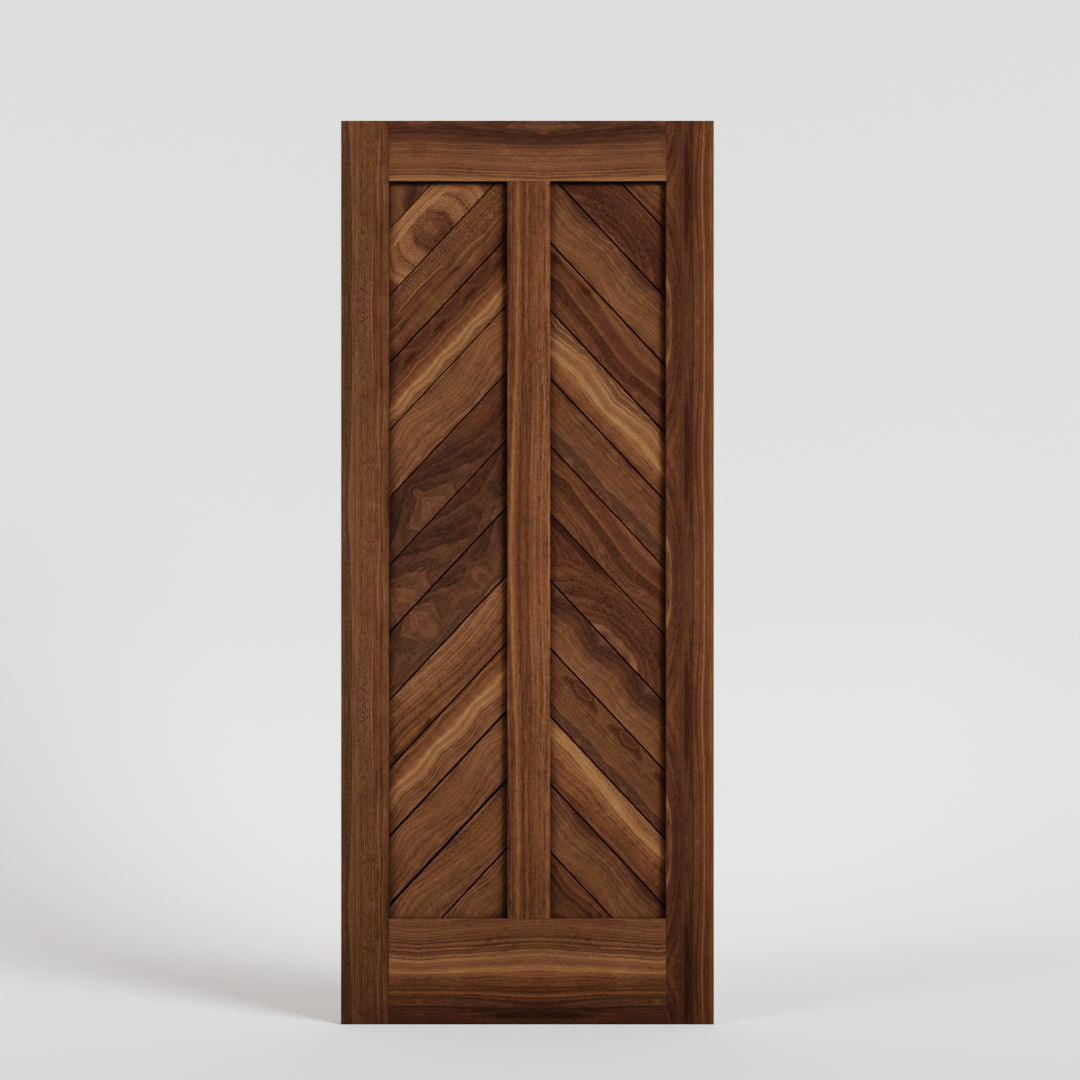
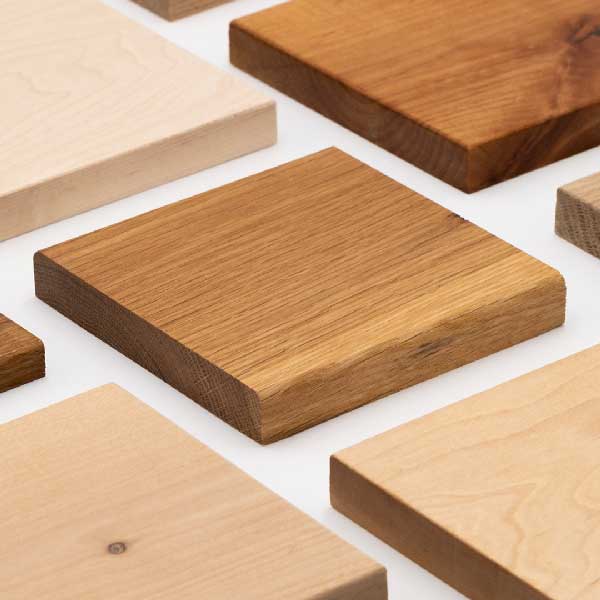

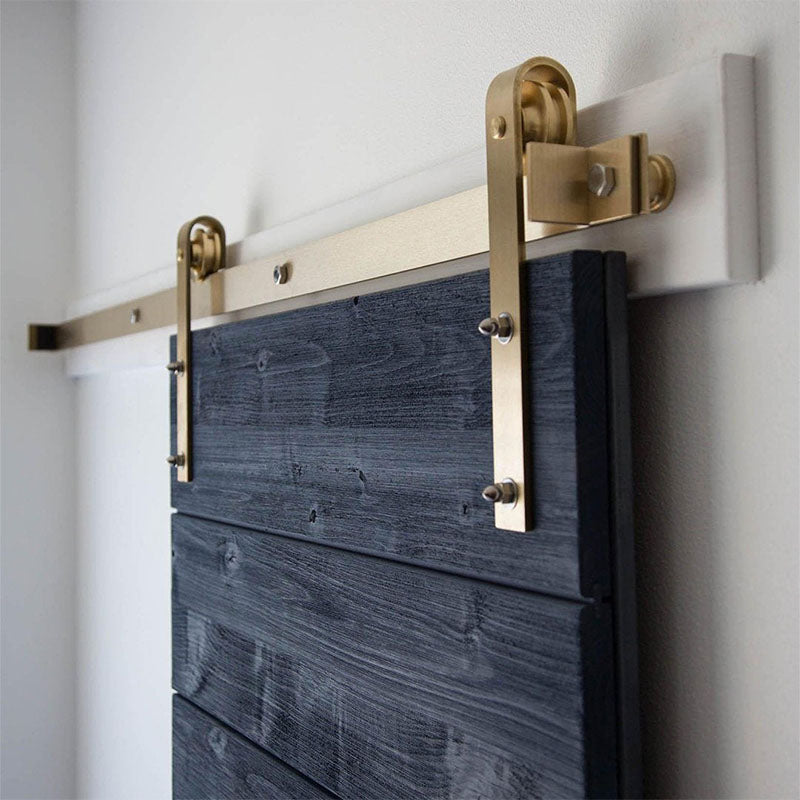
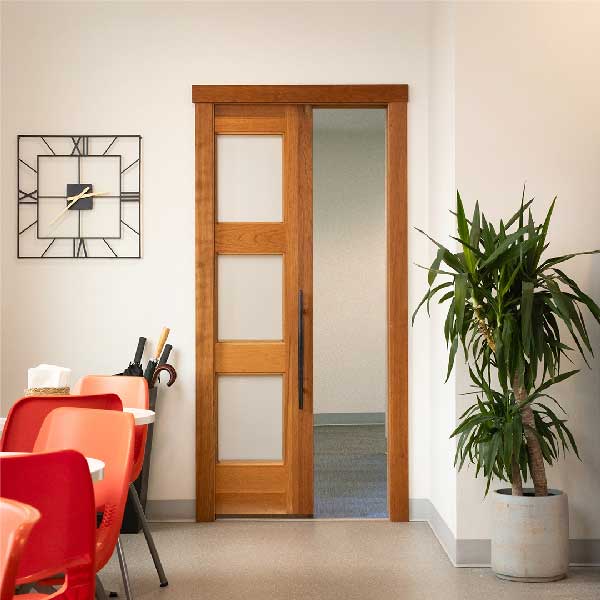
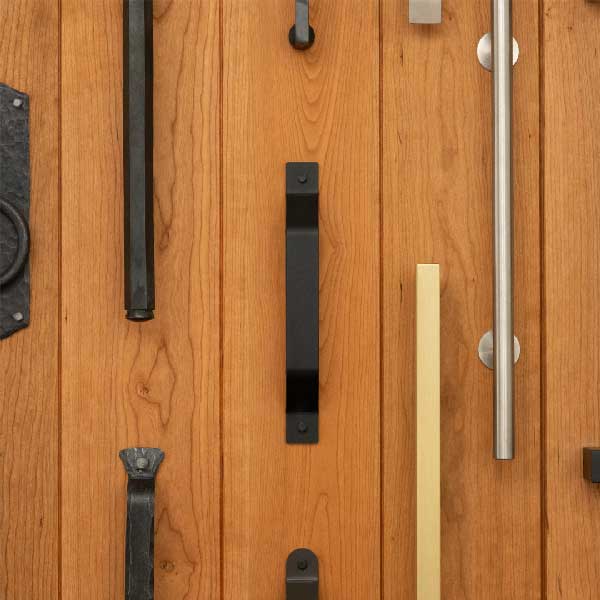
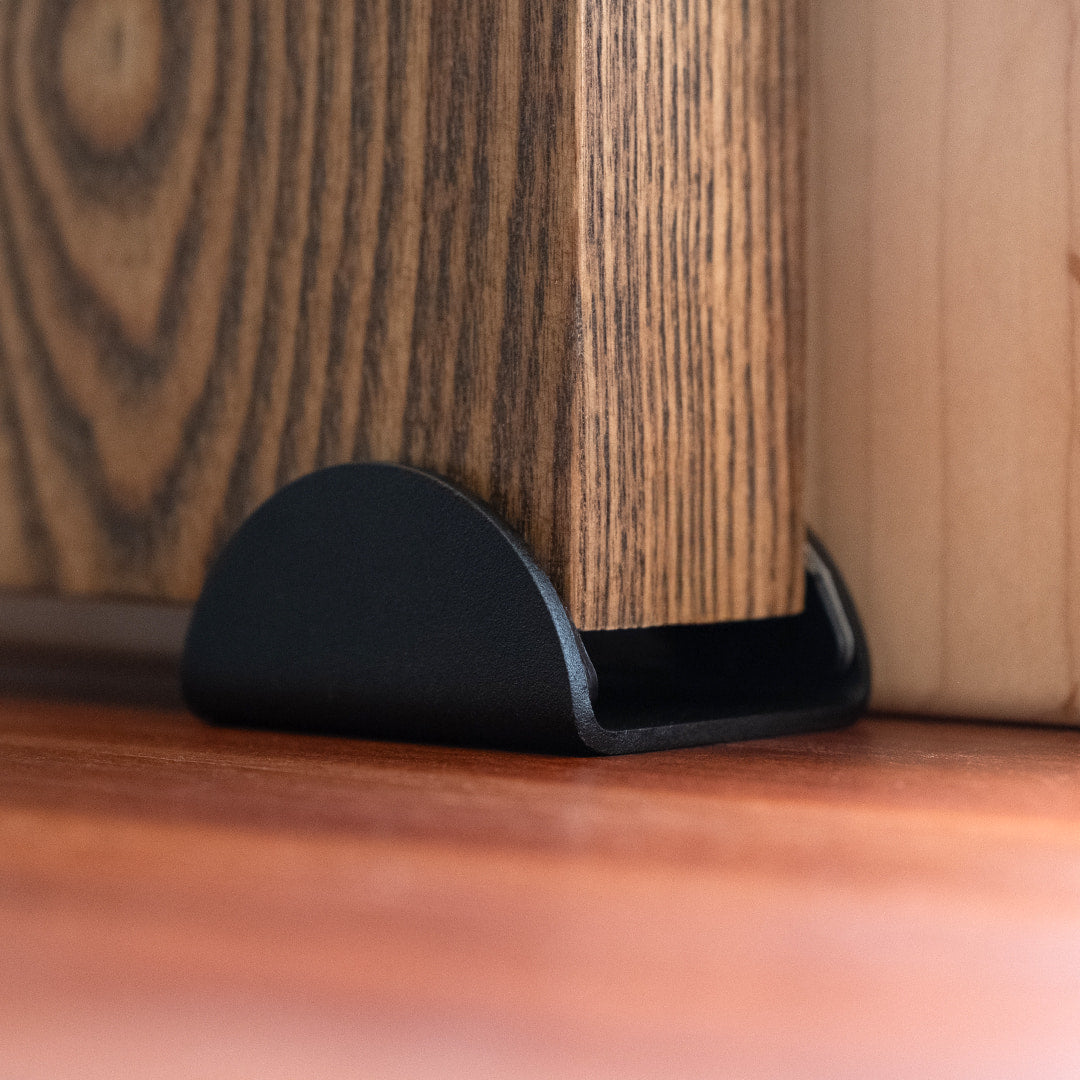
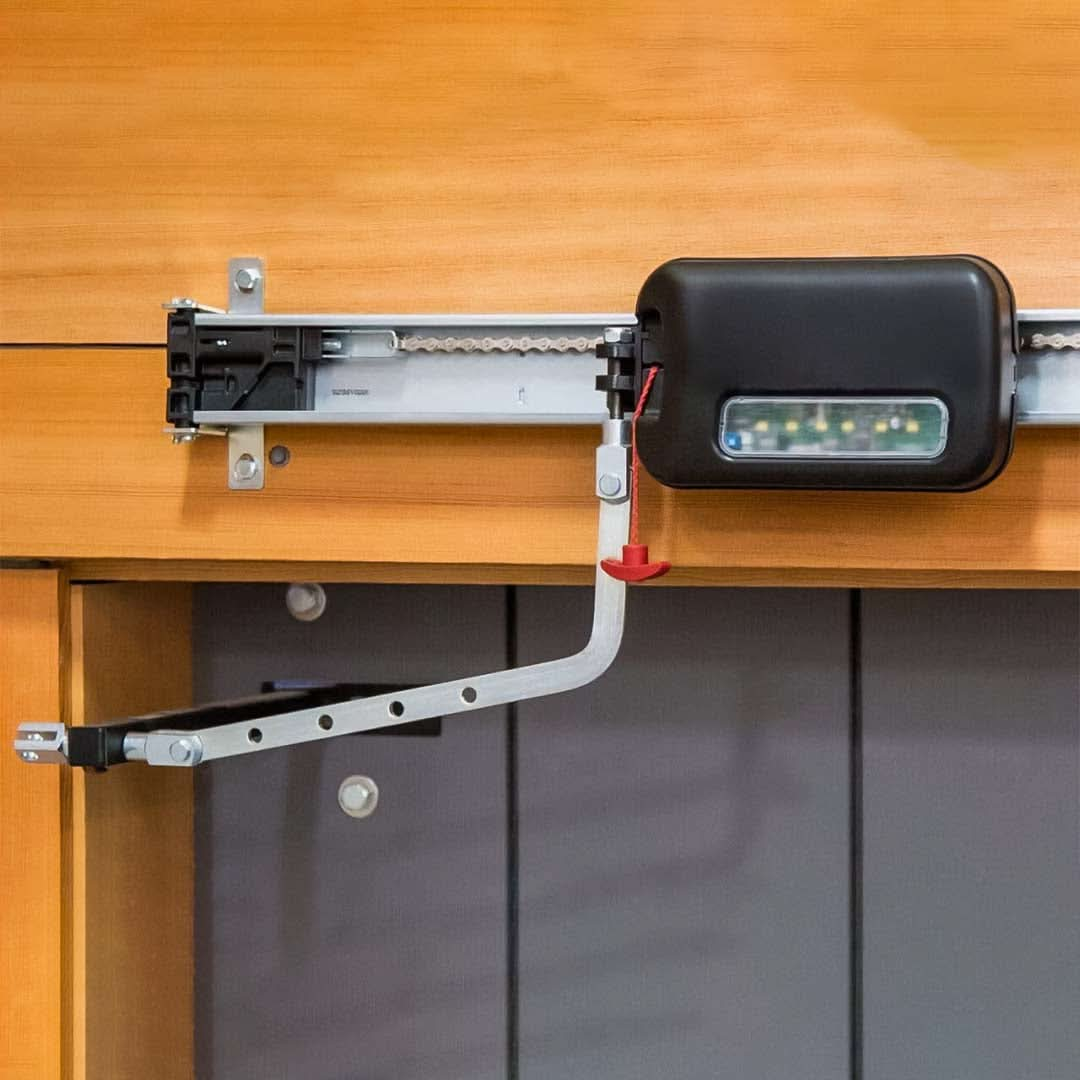


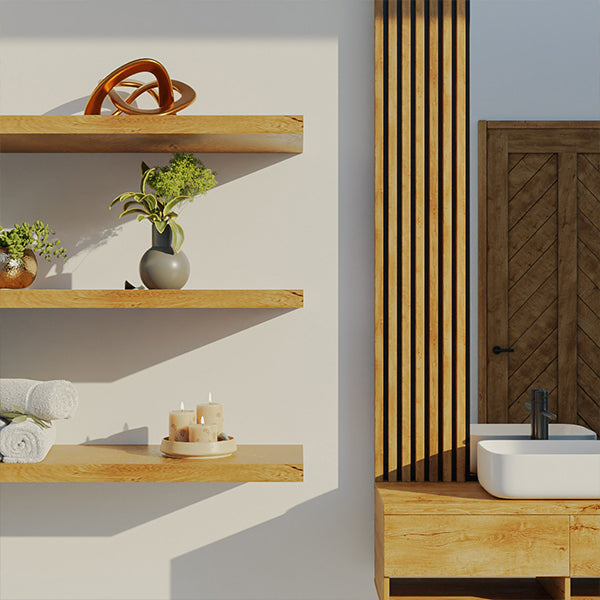


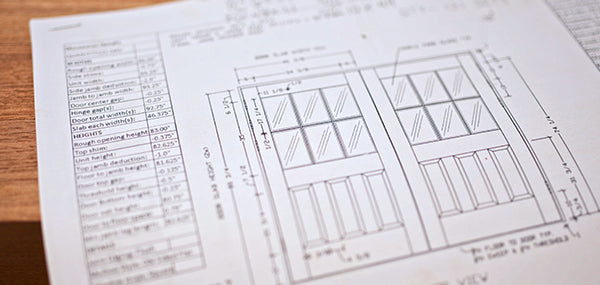
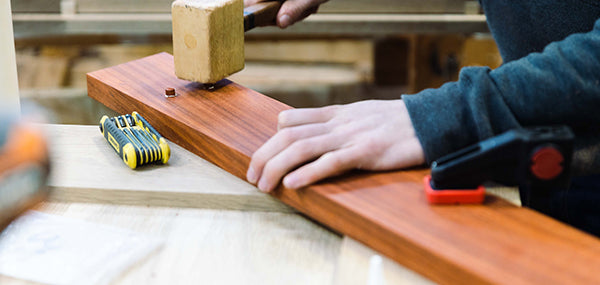


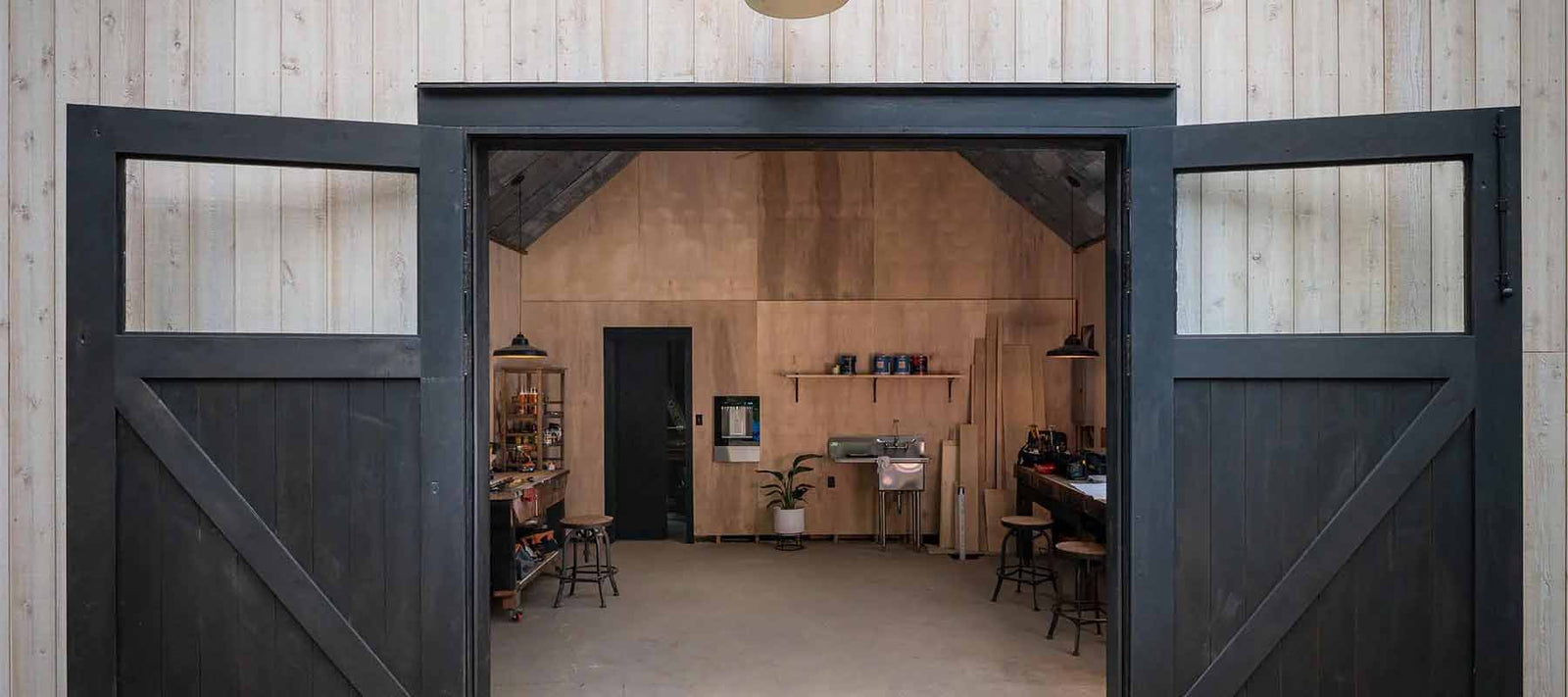
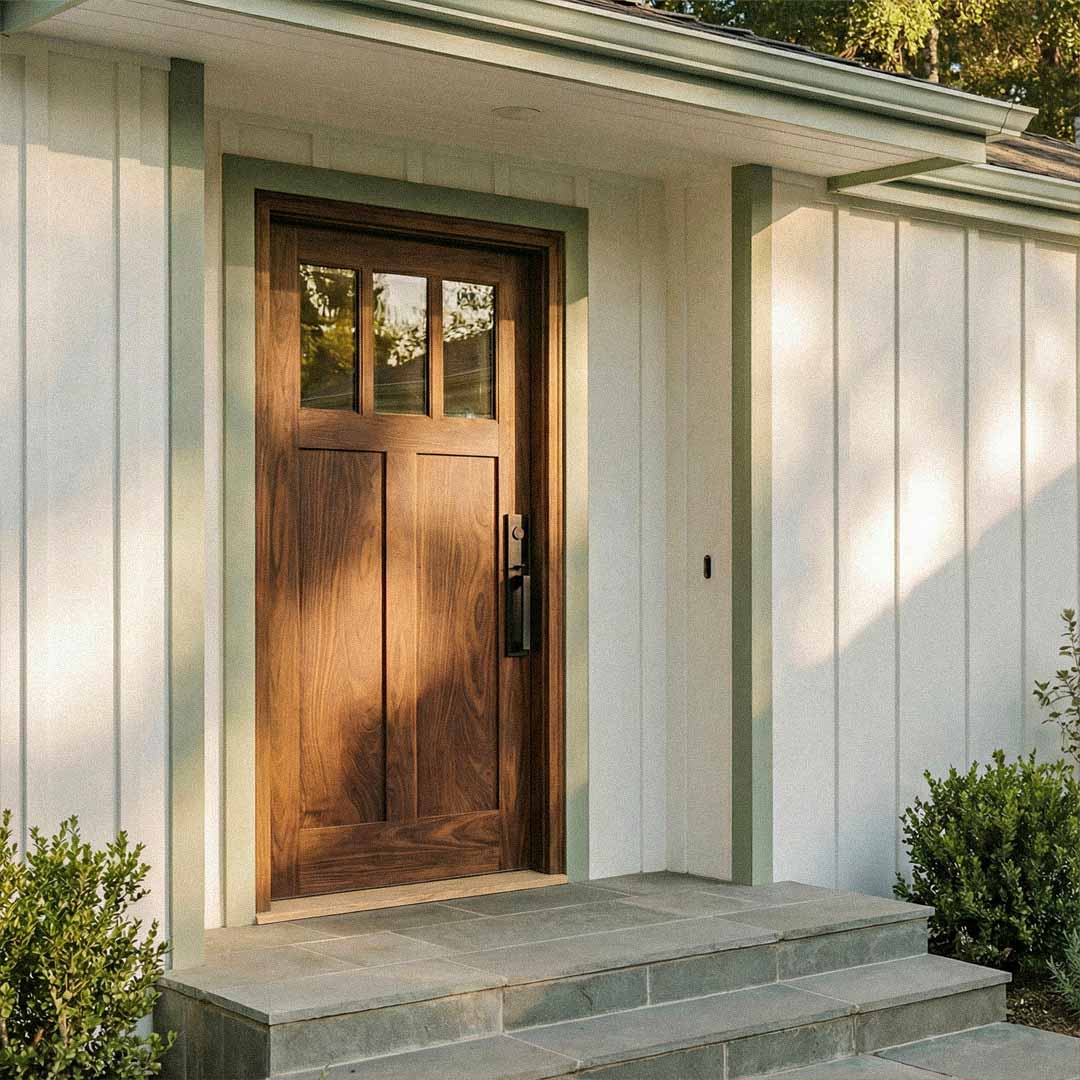
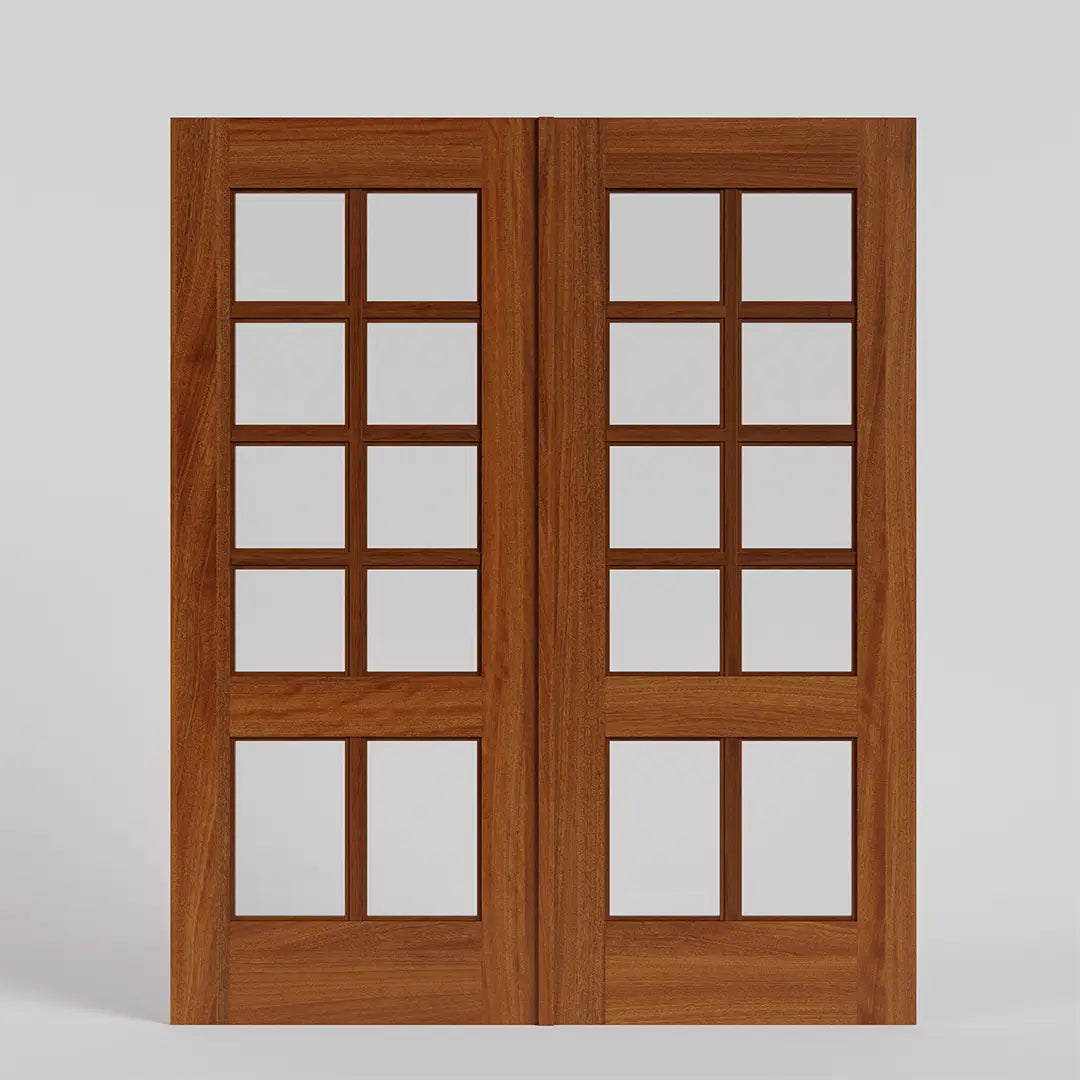
greg pringle
January 21, 2025
Thank you for putting your money where your mouth is. It is refreshing b/c it’s so rare.